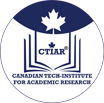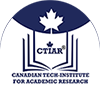There are two roads to OA:
The “golden path” of OA journal publishing, where journals provide OA to their articles (either by crediting the author-institution for refereeing/editing outgoing articles alternatively of charging the user-institution for reaching incoming materials or by just making their online format free for all);
- The “green path” of OA self-archiving, where authors implement OA to their published articles, by making their e-prints free for all.
- The two roads to OA should not be mixed or conflated; they are interconnected. (This site is mainly concentrated on the green road because it is the fastest and surest way to reach immediate 100% OA, but the green path might ultimately lead to gold too).
- OA self-archiving is not self-publishing; nor is it about online publishing outwardly quality control (peer review); nor is it intended for writings for which the author wishes to be paid, such as books, monograph magazine/newspaper articles.
- OA self-archiving is for peer-reviewed research, written singly for research impact rather than royalty revenue.
Throughout the years CTIAR has been able to create stunning, award-winning designs in multiple verticals while allowing our clients to obtain an overall better web presence.
Who profits from Open Access
Community as a whole benefit from an expanded and accelerated research cycle in which research can advance more dramatically because researchers have instant access to all the findings they need. The perceptibility, usage and influence of investigators’ findings progress with OA, as does their capacity to find access and use the conclusions of others. Universities co-benefit from their scientists’ increased impact, which also improves the return on the expenditure of the funders of the research, such as governments, philanthropic foundations, and the tax-paying citizens.
For teachers, Open Access means no restrictions on providing articles for teaching purposes. Only the URL need be provided; Open Access takes care of the rest. Publishers likewise also benefit from the wider dissemination, greater visibility and higher journal citation impact factor of their articles.
Putting Open Access into Practice
- Researchers, their institutions, and their funders needed to be informed of the benefits of implementing Open Access and guided on how quickly and only it is done.
- Institutional Open Access Repositories need to be created (and registered in ROAR, so as to be observed and imitated by other institutions).
- Most significant, an OA self-archiving order for regularly filling these repositories with their target content needs to be approved and implemented (and registered, so as to be recognized and imitated by other institutions).
- An Institutional Repository is the best method to provide OA to research output. Software such as EPrints provides a web-based OAI-compliant IR for free.
Other Research Resource
- Enabling Open Scholarship (EOS).
- OA policy-making guidance for universities and research institutions worldwide.
- Open Access Scholarly Information Sourcebook (OASIS).
- Training and resources for people or institutions who wish to implement open access to their research publications.
- SPARC Campus Open Access Policies
- Devices to support data-driven, community-engaging, and successful open-access policy/design development at institutions wherever.
Proceedings
- CTIAR offers its private publishing platform, online service and a new open-access; that raises the visibility and durability of your conference by providing an electronic version of the proceedings papers freely accessible to scholars all over the globe. We offer a digital object identifier (DOI) for each proceedings paper making them easily discoverable, understandable and citable.Most regional conferences go unpublished and have limited durability beyond the closing ceremony and are overlooked by international databases rendering them unseen to the world. Publishing your conference proceedings on our Platform enables you to benefit from a range of new services listed below:
- Obtaining International Standard Serial Number (eISSN)
- Submitting the papers for evaluation and upon acceptance, indexing in Elsevier Scopus, Thomson Reuters Web of Science, and other discovery services.
- Minting Digital Object Identifiers (DOIs) for accepted manuscripts
- Script editing including English language, style, and submission support
ISBNs
CTIAR offers ISBNs from Bowker Identifier Services. Bowker Identifier Services, the only official U.S. ISBN Agency, is a one-stop-shop for all your book marketing needs. For more information on Bowker Identifier Services offered by Canadian Tech-Institute for Academic Research, Click Here ![]()
List of Official Proceedings with unique ISBN from the USA below;
AACMS’2017 | Official Proceedings of the 1st International Conference on AACMS
ICOBM’17 | Official Proceedings of the 2nd International Conference on Business Management
ICOBM’18 | Official Proceedings of the 3rd International Conference on Business Management
ISCMIS’20 | Official Proceedings of the 2nd International Conference on ISCMIS **Upcoming
Monographs
Monographs are academic books written on an aspect of a subject or a single subject, typically aimed at, but not restricted to, a scholarly audience. However, most of the titles used in the project are single-authored, but some are multi-authored; others are closer to edited samples. Discipline has an impact – in some subjects, it is relatively common to produce multi-authored monographs, while in others, it is rare.
Open Access project uses ‘monographs’ as a shorthand term to comprise publications including monographs, but not limited to monographs collections of articles by one or many authors, and scholarly editions of texts. We invite unpublished, original work focusing on the selection of Management Information Systems.
Books
Reading work by other contributors is imperative to developing your work and helping you learn where to submit your craft. Seeing the actions of other writers can also assist you in finding agents interested in work comparable to yours, determine current literary drifts, and ascertain how other writers craft inspiring manuscripts.
Publishers
In standard, dominant publishing houses do not accept volunteered poetry manuscripts and rarely look at offered fiction or creative nonfiction. Editors at higher publishing companies are more interested in writers who have previously published a book in large-circulation publications.
We recommend you start your search for a book publisher by looking at small but establishing presses and university presses, which are frequently exposed to the work of new authors or contributor and do not unceasingly demand writers to communicate them through an agent. Although they do not have the supplies of larger publishing houses, they are regularly more prepared to assist you in developing as an author even if your books aren’t instantly profitable, and they are open to a broader range of writing.
Identifying Scams
The fundamental way to identify If the publisher is evasive; If the publisher asks for money or asks the writer to “co-invest” in the publishing investment, be suspicious. More so, if there is a dearth of information on the website, and if their contacts information like the telephone number is not visible to the audience, For example, if the listed number yields solely a tape-recorded message and your phone (or e-mail) queries go ignored, be cautious.
In conclusion, make research of potential publishers before submitting your work to the publishing company, for example, check if the publisher company is registered and regulated by the necessary regulatory authority where they are registered.



